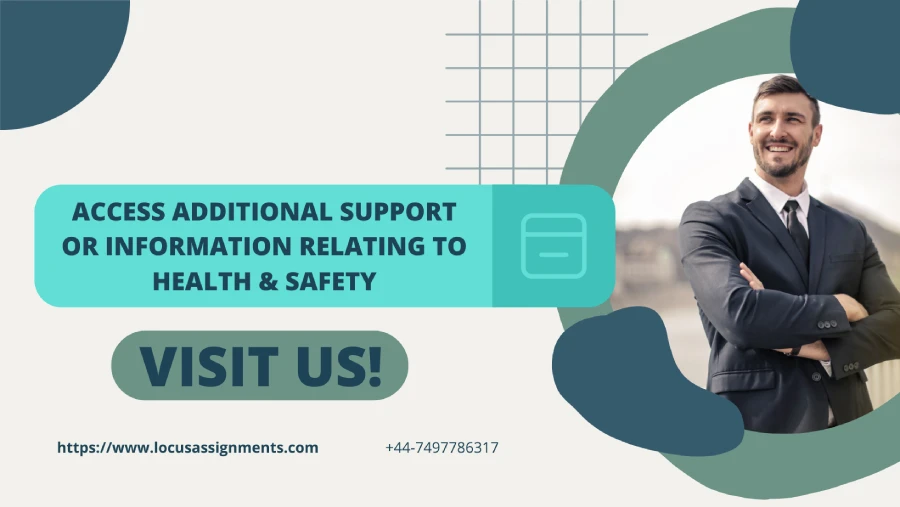Access additional support or information relating to health & safety

Access additional support or information relating to health and safety.
Course – Level 3 diploma in care (RQF)
Unit 8 – Promote Health, Safety, and Well-being in Care Settings
L.O 2 – Be worried about yourself during safety measures
Accessing additional support or information that is relevant to health and safety is a key aspect of working in a care environment, as discussed in Unit 8 of the Level 3 Diploma in Care (RQF). Looking to develop and maintain appropriate knowledge through continuing to check and seek support and information enables both individual safety and the safety of those being cared for.
There are many internal and external sources from which to look for further support or information:
Internal sources are as follows:
Line managers or supervisors: The first port of call to seek guidance, clarification, or to report on health and safety issues.
Health and safety officers in your organisation: Usually, experts provide specific advice and can help to comply with current health and safety regulations
Organisational policies, procedures, and training material: Documents that detail the safe working practices expected in your workplace.
Peers and experienced colleagues: Sharing practical advice and experience.
Health and safety representatives or union representatives: Representatives who often receive specialist training in workplace safety and might advocate for the concerns of staff.
External resources provide wider context and up-to-date information for good practice:
HSE (Health and Safety Executive): UK agency providing a wealth of information, updates, and advice for all health settings. HSE's website can be a one-stop shop – you can even download templates and case studies and find out information about legal ramifications.
CQC (Care Quality Commission): Provides guidance and regulatory standards for care providers.
Professional bodies, e.g., the British Safety Council and the Chartered Institute of Environmental Health, provide opportunities for training, publications, and information about new legislation.
Local authorities, fire service, specialist health professionals (such as OT), manufacturers: Useful for specific risks or questions about equipment.
Websites, forums, and professional networks: up-to-date, instant ways of sharing experience and getting answers to questions with other health professionals.
If you find yourself in a point of uncertainty with any situation or in the presence of new risks, do not feel bad about using these sources of support. Having an appropriate response to risks quickly may help avoid an accident or may enable you to uphold acceptable standards of care. It is beneficial that professional learning is cultivated, for example, by attending external training or workshops that will enhance the ability to respond to health and safety in the workplace.
I suggest that having a culture of caring, i.e., a proactive mindset for supporting health and safety, will result in care workers acting responsibly to promote safety, protecting themselves, and protecting the service user.
Need Help with Your Assignment?
Get expert guidance from top professionals & submit your work with confidence.
Fast • Reliable • Expert Support
Upload NowOther Assignments